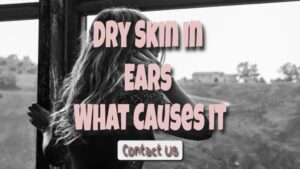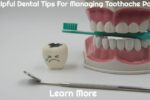Ear Pain After Loud Noise Exposure – Hearing Loss
There is no correlation between an individual's pain threshold for noise and the sounds that cause hearing loss. You can't make your ear more noise-resistant by listening to loud noises.
The acoustic reflex helps protect the cochlea, but regularly being exposed to loud noises does not affect the reflex threshold. Noise conditioning (i.e., exposure to loud, non-traumatizing noise) has been shown to significantly reduce hair cell damage several hours before exposure to traumatizing sound levels.
Even if it's not perceived as too loud right now, noise can still be harmful. For young people, going to a rock concert is not a painful experience, according to Johns Hopkins School of Medicine professor Paul Fuchs, whose research was published in November in the journal PNAS.
To keep your ears healthy, you should keep them away from loud noises and limit how long you're exposed to them. As a general rule, stay away from loud, close, or long noises.
Pioneering scientists have discovered something resembling pain fibres in the inner ear by utilizing state-of-the-art laboratory equipment and techniques (cochlea). Noise-induced ear pain is now being labelled with terms like “toxicosis” and “auditory nociception,” which are being coined by researchers.
Even loud noises that aren't unbearably loud to most people can make them feel physically sick (a condition called hyperacusis). Those who have this heightened sensitivity to sound may be in pain or have discomfort. In addition, it could be an indication of hearing loss.
According to researchers at Johns Hopkins University, when the cochlea's sensory cells are damaged by deafening noise, such as a gunshot, a chemical is released that activates the body's enigmatic pain fibres. These fibres appear to turn on and stay on in some people.
Noise can affect people of any age. NIHL can strike people of any age group, including infants, adolescents, young adults, and the elderly. Around 40 million adults are thought to exist. (24 per cent) in the United States under the age of 70 who have characteristics in their hearing tests that indicate a hearing loss in one or both ears as a result of exposure to loud noise, according to a 2011-2012 CDC study that included hearing tests and surveys of participants. In addition, according to research based on data from 2005-2006, up to 17% of adolescents (aged 12 to 19) have hearing test features that indicate NIHL in one or both ears (Pediatrics 2011).
When one ear is affected by noise-induced hearing loss, it is rare. Unilateral hearing loss occurs when the problem affects only one ear. If you hear a sudden, loud noise near one of your ears, it could be this.
The decibel range of normal sounds can be estimated by your doctor, such as an estimate of around 90 decibels for a small motor. Your doctor. As a result, you'll know whether or not your environment increases your risk of acoustic trauma or hearing loss.
Sound pressure levels are measured in decibels.
Even with prolonged exposure, 70 A-weighted decibels (dBA) or lower sounds are unlikely to cause hearing loss. Long-term or repeated exposure to noise levels greater than 85 dBA, on the other hand, can lead to permanent hearing loss. Shorter periods of NIHL are associated with louder sounds.
Unwanted or unpleasant sounds aren't the only ones that can harm us. The thud of a jackhammer on the sidewalk and the strains of music coming from a concert:for example, can both damage the inner ear. Loud noises (acoustic energies) from any source are equally dangerous, no matter how intense or how long they last. Experiencing high-intensity sound regularly may eventually cause acoustic trauma to the ears. Another sign of hearing loss is ringing in the ears. (Tinnitus), and occasional dizziness, this trauma can also cause non-acoustic effects like increased heart rate and blood pressure.
When you have Tinnitus, you will hear a ringing or buzzing in your ear. The most common reason is alterations in the ear brought on by advancing age. It's common when there's also a loss of hearing due to old age. It can also be caused by something else, such as Ménière's disease, ear damage from noise, or an ear infection. Your physician will look for other possible causes before making a diagnosis.
Your hearing may gradually deteriorate if you are repeatedly exposed to loud noise. Due to the gradual nature of noise-induced hearing loss, you may be unaware of it or choose to ignore it until it becomes a more severe health issue.
As time passes, sounds may become distorted or muffled, making it difficult to hear others speak or forcing you to increase the TV's volume. Because of NIHL damage and ageing, you may have severe hearing loss and need hearing aids to hear, communicate, and participate in daily activities.
Earmuffs (active or passive) and earplugs provide the best protection, but their effectiveness in preventing long-term hearing damage cannot be determined with certainty. Evidence suggests that the maximum combined noise reduction rating (NRR) when earmuffs and earplugs are used simultaneously is only 36 dB (C-weighted). Passive, custom earplugs with a mechanical filter built into the plug's centre and a small opening to the outside are available. These earplugs can be used on a firing range to hear firing commands while protected from impulse noise.
Six intercollegiate basketball games had noise exposure levels above national occupational noise exposure standards, with participants temporarily reaching a threshold during one of the games, according to an investigation into intercollegiate basketball noise exposure levels.
Contrary to popular belief, the idea that frequent exposure to loud noise can “abhor” one's ears is unfounded. Past exposure to loud noises may have permanently damaged the eardrums, making it difficult to perceive the annoyance. Unfortunately, there are only a few treatment options for lisping-induced hearing loss once the damage has already occurred.
Clinical trials have been carried out to treat pre-existing NIHL following a traumatic Lärmereignis, such as a fall or a firework. Persons with a severe acoustic nightmare after a boiler exposure were injected with the zellthroughlable ligand, AM-111, in 2007. The research found that AM-111 had therapeutic effects in at least two patients with severe post-traumatic stress disorder. Patients with severe post-suspension trauma may benefit from a treatment combining Prednisolon and Piracetam. Treatment received within an hour of the injection showed higher recovery rates and significantly less shivering than treatment received after an hour. Still, the latter group also showed higher recovery rates and shivering.
A new study out of the University Clinic in Mainz found that an increasing level of lulling can disrupt the heart's natural rhythm. This irregular heartbeat is known as a Vorhofflimmern and can cause blood poisoning, a stroke, and even heart failure.
Aches and pains in the ears after exposure to loud noises
Ohrstöpsel for sleeping should be as comfortable as possible while also blocking out any outside noise that might interfere with or disturb your sleep. Specialized hearing aids for sounds like a partner's snarling can provide ear-soothing improvements that allow users to hear other sounds, such as a rattling door, without being distracted.
Headaches after being exposed to loud noises
You can detach your attention from the sting by removing yourself from the lull caused by the shrill noises. Consider subscribing to a podcast or turning on some soft music. Please make sure you don't play these sounds loudly because they can be as damaging to your ears as attending a concert would be.
Impulsive or persistent loud noise can sometimes cause a temporary hearing loss that goes away within 16 to 48 hours. However, the most recent research suggests that long-term harm may be done even if the hearing loss disappears.
However, two years ago, his ears began to ring. Due to time constraints, he interviewed via email, which resulted in him saying that “bellowing dogs, overcrowded spaces, and pretty much every noise that even only in the removal tests as loud was, sent shockwaves through my head.”
The only type of hearing loss that cannot be reversed is NIHL. If you're aware of the dangers of loud noises and how to protect your hearing, you can keep your hearing healthy for the rest of your life.
And that's how it goes:
Ototoxic drugs are those that harm the ears. Damages may result in hearing loss, otosclerosis, or unbalance. Over 200 medications are potentially harmful to the ears. Other drugs include Gentamicin, cancer medications like Cisplatin and Carboplatin, and salicylate-containing pain relievers like Aspirin, Chenin, and Schleifendiuretica. And a slew of other pharmaceuticals.
Please consult a medical professional, such as a neurologist. whenever you have concerns and have them check on you regularly.
Brought To You By – Ear Wax Removal








No responses yet